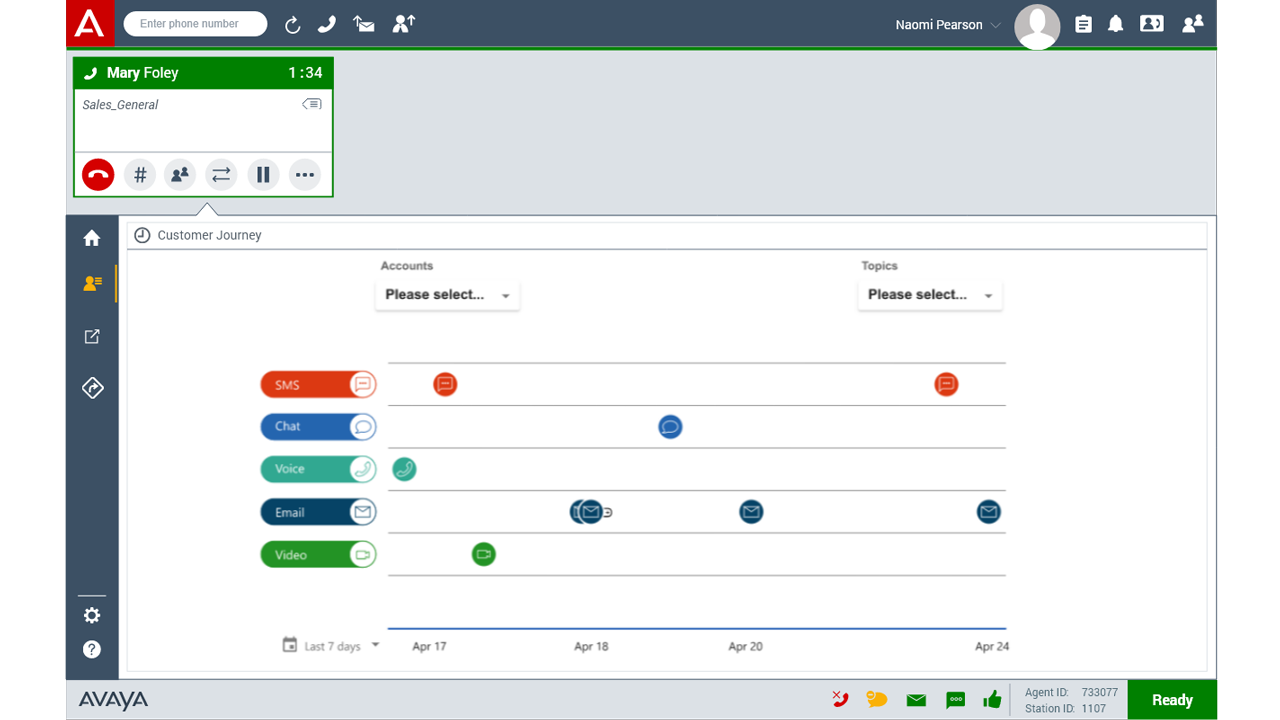

- #Avaya aura agent desktop 6.4 for mac update
- #Avaya aura agent desktop 6.4 for mac upgrade
- #Avaya aura agent desktop 6.4 for mac code
A client could smuggle a request through a proxy, causing the proxy to send a response back to another unknown client. Prior to versions 5.5.1 and 4.3.9, using `puma` with a proxy which forwards HTTP header values which contain the LF character could allow HTTP request smugggling. Puma is a HTTP 1.1 server for Ruby/Rack applications.
#Avaya aura agent desktop 6.4 for mac update
Users should update to Apache Shiro 1.8.0. No exploit is known to the project.Īpache Shiro before 1.8.0, when using Apache Shiro with Spring Boot, a specially crafted HTTP request may cause an authentication bypass. The vulnerability was recently introduced in version 2.4.49. This requires a specially crafted request. While fuzzing the 2.4.49 httpd, a new null pointer dereference was detected during HTTP/2 request processing, allowing an external source to DoS the server. To address the insecurity of the BinaryObjectHelper class, the following changes to DdlUtils have been made: (1) BinaryObjectsHelper.java has been deleted from the DdlUtils source repository and the DdlUtils feature of propagating data of SQL binary types is therefore no longer present in DdlUtils (2) The ddlutils-1.0 release has been removed from the Apache Release Distribution Infrastructure (3) The DdlUtils web site has been updated to indicate that DdlUtils is now available only as source code, not as a packaged release. Please note that DdlUtils is no longer being actively developed. The BinaryObjectsHelper class was insecure and used ObjectInputStream.readObject without validating that the input data was safe to deserialize. The fix in Apache HTTP Server 2.4.50 was found to be incomplete, see CVE-2021-42013.Īpache DB DdlUtils 1.0 included a BinaryObjectsHelper that was intended for use when migrating database data with a SQL data type of BINARY, VARBINARY, LONGVARBINARY, or BLOB between databases using the ddlutils features.
.jpg)
This issue only affects Apache 2.4.49 and not earlier versions. This issue is known to be exploited in the wild.
#Avaya aura agent desktop 6.4 for mac code
If CGI scripts are also enabled for these aliased pathes, this could allow for remote code execution. If files outside of these directories are not protected by the usual default configuration "require all denied", these requests can succeed. An attacker could use a path traversal attack to map URLs to files outside the directories configured by Alias-like directives. See CVE-2021-25633 for the LibreOffice advisory.Ī flaw was found in a change made to path normalization in Apache HTTP Server 2.4.49. Users are advised to update to version 4.1.11. All versions of Apache OpenOffice up to 4.1.10 are affected. It is possible for an attacker to manipulate signed documents and macros to appear to come from a trusted source. See CVE-2021-25634 for the LibreOffice advisory. It is possible for an attacker to manipulate the timestamp of signed documents. See CVE-2021-25635 for the LibreOffice advisory. It is possible for an attacker to manipulate documents to appear to be signed by a trusted source.
#Avaya aura agent desktop 6.4 for mac upgrade
4.1.x users should upgrade to 5.1.3.Īpache Superset up to and including 1.3.0 when configured with ENABLE_TEMPLATE_PROCESSING on (disabled by default) allowed SQL injection when a malicious authenticated user sends an http request with a custom URL. Apache Traffic Control 5.1.x users should upgrade to 5.1.3 or 6.0.0. This issue only affects Apache 2.4.49 and Apache 2.4.50 and not earlier versions.Īn authenticated Apache Traffic Control Traffic Ops user with Portal-level privileges can send a request with a specially-crafted email subject to the /deliveryservices/request Traffic Ops endpoint to send an email, from the Traffic Ops server, with an arbitrary body to an arbitrary email address.

It was found that the fix for CVE-2021-41773 in Apache HTTP Server 2.4.50 was insufficient. This created a memory leak that, over time, could lead to a denial of service via an OutOfMemoryError. The object introduced to collect metrics for HTTP upgrade connections was not released for WebSocket connections once the connection was closed.


 0 kommentar(er)
0 kommentar(er)
